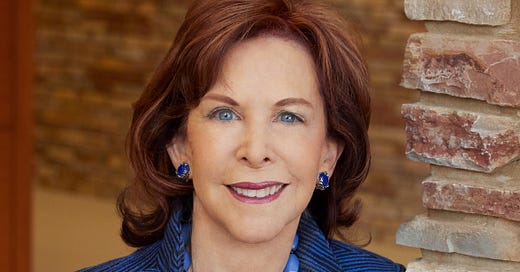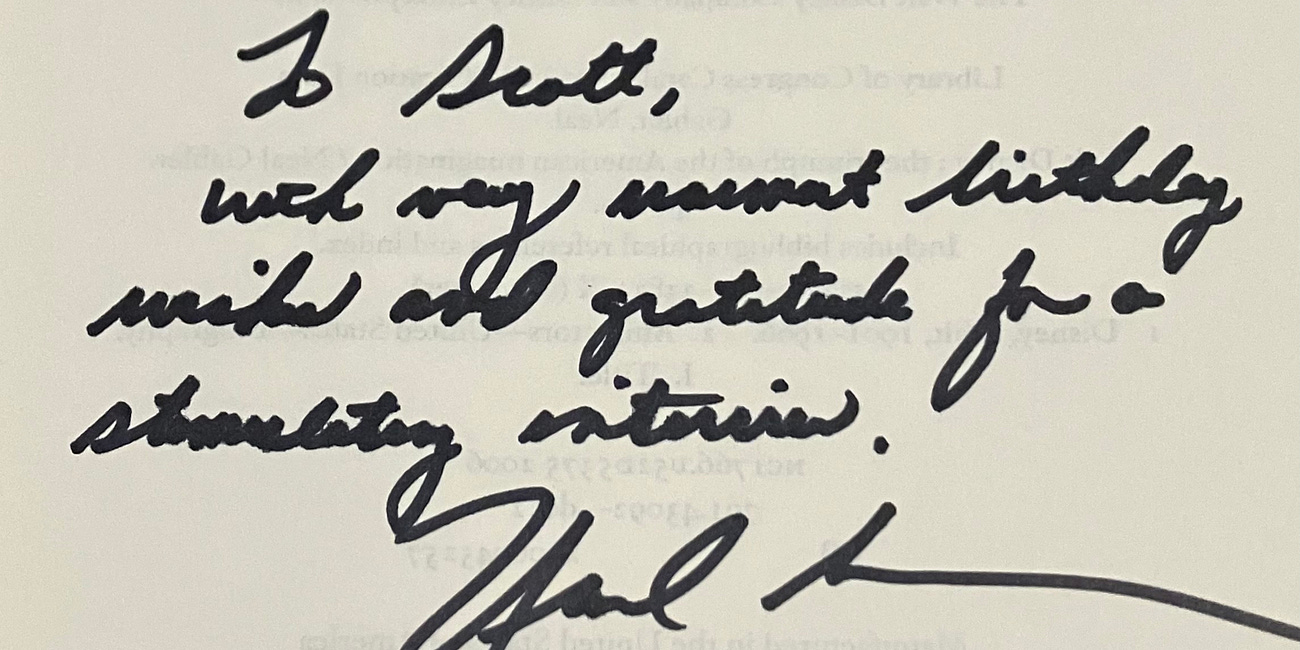Interview with Terry Savage
Exclusive conversation with Chicago’s foremost financial broadcaster
Growing up in Chicagoland, I learned about the urgency of money, business and finance from broadcast journalist Terry Savage.
After I discovered the meaning of money from Ayn Rand upon reading Atlas Shrugged at the age of 18—as an aspiring teen-aged writer and dancer motivated to connect with those in the press and arts whom I thought might be able to grasp the novel—I cold called Miss Savage at a TV station out of curiosity. Chicago’s foremost personal finance guide took my call; we discussed our mutual admiration for Rand’s 1957 novel. Later, we connected on LinkedIn. A few weeks ago, I interviewed the bestselling author and former stock broker on assignment for Classic Chicago magazine.
The proper interview requires an ability to extemporaneously integrate essentials (read my retrospective story about my career interviews in the article linked below). This one affords a profile of Terry Savage—my premier interview for this Midwestern media, which introduced fiction this year with my short stories—and delves into her career, childhood and strategies. I learned about her philosophy during what may be a defining interview with one of Chicago’s premier businesswomen. Read this exclusive interview with Terry Savage, which debuts this weekend, here. (In the first-ever publication of my fiction with my non-fiction in the same issue, you can read my short story, “The Patient and the Passenger,” too).
Related Episodes, Articles and Links
Thirty Years in the Press
Interviews have always been a major part of my journalism. From my articles for a school newspaper and an alternative press in Chicago to Autonomia, the interview is one of my most practiced, skilled and methodical formats. I possess a natural (and arguably inappropriate) curiosity in the company of stars, strangers and ordinary people. Even as a boy, if I wanted to know something, whether the cause of a handicapped person’s handicap or the cause of an action in the presence of someone in authority, such as a firefighter or police officer, I walked up and asked what was happening and why. To family, friends’ parents, neighbors, teachers, priests, nuns and policemen, I think I must’ve been an exhausting child. As I started to read about sex in books I discovered—and in a magazine titled
Obituary: Robert Benton
After attending my dearest friend’s 90th birthday party, I learned that screenwriter and director Robert Benton died on Mother’s Day at the age of 92. Today’s news is so shallow, flimsy, compartmentalized and devoid of what matters that news of his death had escaped my notice. This obituary skims the surface. I’ll write with greater clarity and purpose in the future. I met, knew and worked with Robert Benton, who became an admirer of







